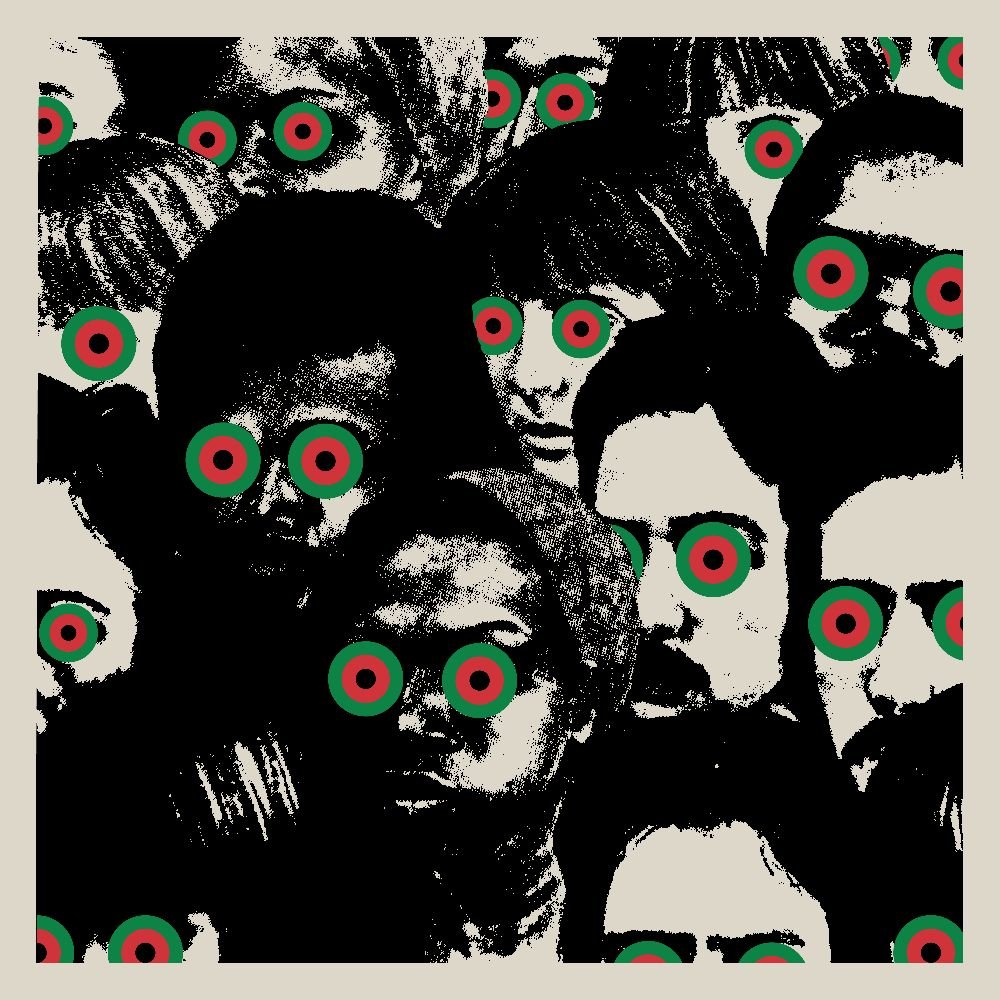by Jordan Michael (@jordwhyjames)
There’s a cardinal rule in hip-hop: always have hustle and flow. If you don’t, you don’t. If you do, lord willing. In the case of Black Thought (aka Tariq Trotter), he’s one of the greats, possibly the best lyricist in some circles. He’s an underdog and a legend, all at once. His new album, Cheat Codes, with Danger Mouse in the directors chair was highly anticipated, and is excellent.
There is a heap of deep lyrical content on Cheat Codes; around 10,000 words over twelve songs and 38 minutes. Danger Mouse’s production is golden swag, but he’s in the passenger seat, allowing Black Thought to be the G.O.A.T. “Yo, I’m at the top where everyone is lonely / I got everybody mean-mugging like Nick Nolte,” the Roots’ co-founder says on “No Gold Teeth.” Trotter is a genius, undeterred.
Cheat Codes is Danger Mouse’s first hip-hop LP production in seventeen years (since Danger Doom’s The Mouse and the Mask in 2005). Black Thought has his Stream of Thought EPs in 2018, and the Stream of Thought full-length in 2020; but this is his first LP collaboration outside of the Roots. Cheat Codes is as dizzying as all those, if not more. Stream of consciousness on tape.
Danger Mouse (Brian Burton) has won six Grammy’s, including Producer of the Year in 2011. In 2009, Paste named him Producer of the Decade. He has a new Broken Bells (his project with James Mercer from The Shins) album coming this year and he’s done albums with Karen O, Daniele Luppi, Spaklehorse and Jemini, but that’s not nearly it, Mouse produced Demon Days (Gorillaz), Busdriver, Pieces of People We Love (The Rapture), four Black Keys albums, Beck, Parquet Courts, A$AP Rocky, Adele, Michael Kiwanuka (who is featured on Cheat Codes) and Electric Guest. Burton compares his philosophy of music making to that of film-maker Woody Allen: Allen did a thing, completely his own, and Mouse does that with music, creating music from a directors role. He brings in artists and shows them a different world.
The world Black Thought is painting on Cheat Codes is cloudy, but a bit hopeful. He’s turning 51 years old this fall and has been around the block and back and around the block numerous times after that. The Roots have been Jimmy Fallon’s house band for years, and that’s where BT shows his comedic side. Here, there’s not much comedy, rather a ton of realism. Almost every city in America is full of despair ,crime and violence these days: walking anywhere alone at night is a risk.
“Pay the price, gamble with ya life like Pete Rose / Bust a move, paper bubble like Veuve Clicquot’s / Who got the streets of Philly flooded like Puerto Rico’s?” The streets are flooded with grime, smoke weed and drink Hennessey (“Blackness is not a monolith / a lot of us see therapists / bouncing off a glass ceiling / chase the Grim Reefer with Henn-ocide”).
On “The Darkest Part,” Trotter references Thelonious Monk’s 1968 album, Underground, and “Sambo,” a racist term for African heritage seen through the context of overall discrimination towards black people.
“I’m like Thelonious at the underground piano / Dressed in camo, the grenades, guns, and ammo / Death to Sambo, send him a bouquet and candle / I came to take back that other two-fifths of a man, yo / From a silhouette standin’ in the aperture / To a figurehead standin’ in the path of a killer / young gorilla just scramblin’ for Africa.”
In 1787, the Three-Fifths Compromise was a deal made for the inclusion of slaves in calculation to a state’s population total. There is “Sambo’s Grave” in North West England—slave ships served cotton and sugar out of that port. It’s New Imperialism and BT is saying the true gorillas are the white men committing atrocities. Trotter often raps about oppression, talking about the white-black imbalance in our country, especially in his hometown of Philadelphia. Raekwon slips into the end of “The Darkest Part,” spitting quick about art kids who become arsonists or ostrichs? He drops a shout to The Jungle Brothers, a NYC jazz, hip-hop and house fusion trio since 1987.
On “Because,” BT mentions Elmina Castle, the slave prison and trade in Ghana; slaves were pushed to a ship through a small doorway: “Broken spirit, some assembly required / It confirmed the door of no return at Elmira.” The track has a quick Bobby Womack reference (RESPECT) before Joey Bada$$ and Russ throw down about cannabis and watching your tongue around your girl: “I don’t vacation, dawg, I guilt trip.”
Of course, this assessment of Cheat Codes would not be complete without a conversation about “Belize,” a hot track featuring the late, gone-to-soon great, MF DOOM, who is BT’s partner in rhyme. In front of a twinkle piano and steady ride cymbal, Trotter is willing to stay a loner, like the character from “The Lobster,” who flees to the woods after failing to find a new partner.
“Yo, I’m sick, no lymph nodes is swollen / They told me even when the records skip, keep em’ rolling / On the shoulder like a California highway patrolman / launch codes was stolen and sold by Ed Snowden / Fuck a thick skin, I got me a exoskeleton / The black Colin Farrell in The Lobster.”
With his classic drawl, DOOM rhymes about the Broodwich sandwhich from Aqua Teen Hunger Force, misdirecting it with this line: “Danger made him groove off a glitch…made your boo booty twitch and the crew rich, bitch / always wanted to say that.”
Oh, by the way, A$AP Rocky and Run The Jewels show up on “Strangers,” so have fun with that. Cheat Codes is straight fire. It flies by, similar to planes in the sky. Don’t forget to read.

